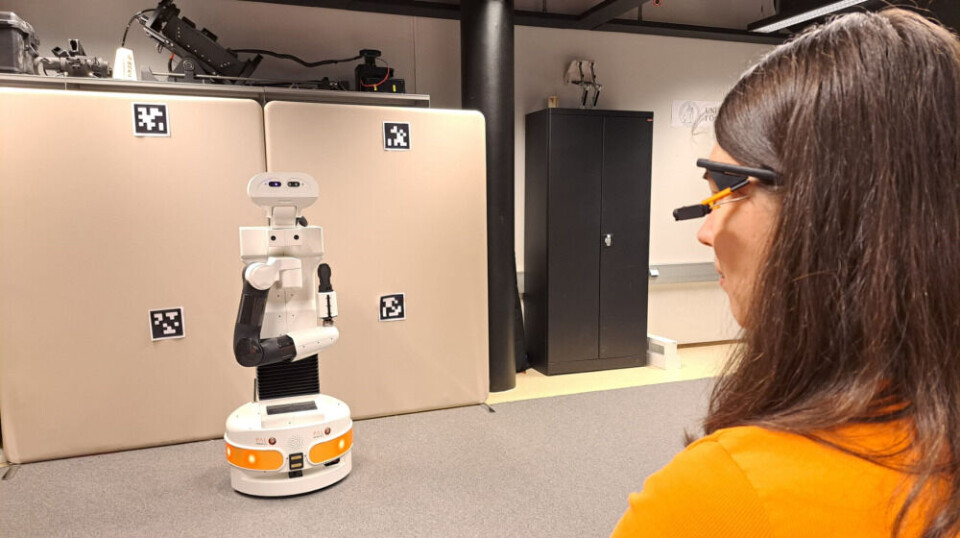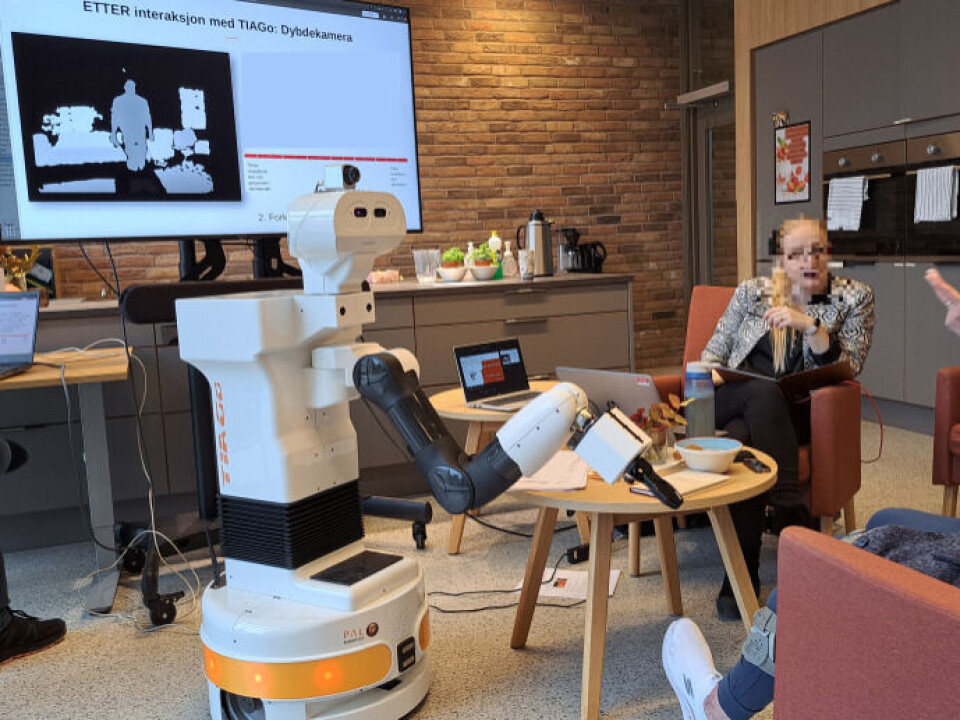THIS CONTENT IS BROUGHT TO YOU BY University of Oslo - read more

Humans have one characteristic that AI and robots are far from having
Researcher Marieke van Otterdijk is working to give robots intuition. "If we succeed, there are many ethical questions to consider," she says.
On September 11, 2001, during the terrorist attacks in New York, the commander of one of the firefighting teams decided he needed to evacuate his team from the skyscraper they were in.
At the time, he could not explain why he suddenly ordered everyone out.
In the book Thinking, Fast and Slow, psychologist and researcher Daniel Kahneman used the episode as an example of an intuitive decision: decisions we make quickly, based on a unique blend of knowledge, experience, and emotions.
Only later did the firefighter realise that he had reacted to how quiet the fire was. Additionally, his ears felt unusually cold. It turned out that the core of the fire was on the floor below them. Shortly after the firefighting team left, the floor they had been standing on collapsed. The firefighter’s intuition saved the lives of everyone on the team.

“Most human decisions are intuitive. For now, robots are not able to do anything similar,” says Marieke van Otterdijk.
She is a researcher at the University of Oslo's RITMO Centre for Interdisciplinary Research on Rhythm, Time and Movement.
The magic of human intuition
Van Otterdijk does not know if a robot will ever be able to do what the firefighter in New York did.
Today, robots can use artificial intelligence (AI) to make autonomous decisions. However, this decision-making is quite rigid and based on algorithms developed to find logical solutions.
Human intuitive decision-making is faster, more fluid, and based on emotions and associative thinking. For example, if we see a person smiling and receiving a gift, we might associate it with a birthday.
“This is not necessarily correct, which makes intuition tricky. However, intuition gives humans an adaptive ability. We can adapt to the changing world around us and even to robots," she says.
If robots gain some sort of intuition, they too could become more adaptable, she believes.
"I do believe that it would increase their ability to help humans,” she says.
Intuitive robots in the making
In her doctoral work, van Otterdijk developed a theoretical framework that could form the basis for developing robotic intuition.
The field is unexplored and challenging, partly because we do not yet fully understand human intuition.
Part of her research involved studying human interactions with robots and the role of human intuition in those interactions. Most architectures and algorithms built for robots take inspiration from psychological theory.
“It is essential to see how these theories play out in real interactions. Which aspects are most important, and which are potentially missing?” she says.
When she brought a robot to a nursing home, one of the first things the robot did was introduce itself and shake hands.
“We wanted to check how people responded. Many seemed to understand what the robot wanted to do, but some were unsure and looked at the researcher. After all, the robot was unknown to them. Some were also afraid of their hand getting hurt,” she says.
In her studies, she saw that people tended to interpret robots quite well and without much effort. Intuition helps us, van Otterdijk believes.
“However, when the robot’s behaviour contradicts human behaviour, things become difficult. For example, if the robot says ‘hello’ or ‘have a good time’ while brushing someone's hair, people get confused!” she says.

An assisting tool, not a replacement
She heard several elderly people say they do not want robots to replace human caregivers. However, after they met her robot, they relaxed, as they did not believe it was likely to happen.
Van Otterdijk prefers to see robots as an assisting tool rather than a replacement for humans. However, she believes we need to consider several ethical questions moving forward.
“If robots are to gain some form of intuition, one question we must ask is how they will make their choices. What if a robot brings food to an elderly, who does not feel like eating? Alternatively, what if a person collapses but has expressed that he or she does not want to be helped? Should the robot follow the wishes of that person or the wishes of society?” she asks.
We should also carefully consider when we want robots to make decisions and when we want humans to do so, she believes.
“Even if we manage to give robots a form of intuition, I do not think that all robots should have it. This depends on the task they are set to perform,” says Marieke van Otterdijk.
References:
Van Otterdijk et al. 'Age-Old Gesture: Analyzing the Intuitive Responses to Robot Handshakes Among Seniors and Young Adults', In 2024 33rd IEEE International Conference on Robot and Human Interactive Communication (ROMAN) (pp. 1156-1161). IEEE, 2024. DOI: 10.1109/RO-MAN60168.2024.10731393 (Abstract)
Van Otterdijk et al. 'To Shake or Not to Shake: Intuitive Reactions of Senior Adults to a Robot Handshake in a Western Culture', In 2023 32nd IEEE International Conference on Robot and Human Interactive Communication (RO-MAN) (pp. 890-896). IEEE, 2023. DOI: 10.1109/RO-MAN57019.2023.10309608 (Abstract)
Van Otterdijk et al. 'The Effect of Expressive Robot Behavior on Users’ Mental Effort: A Pupillometry Study', IEEE Transactions on Cognitive and Developmental Systems, 2024. DOI: 10.1109/TCDS.2024.3352893 (Abstract)

This content is paid for and presented by the University of Oslo
This content is created by the University of Oslo's communication staff, who use this platform to communicate science and share results from research with the public. The University of Oslo is one of more than 80 owners of ScienceNorway.no. Read more here.
More content from the University of Oslo:
-
Where humans outshine AI: “There's something hopeful in these findings”
-
Why we need a national space weather forecast
-
Mainland Europe’s largest glacier may be halved by 2100
-
AI makes fake news more credible
-
What do our brains learn from surprises?
-
"A photograph is not automatically either true or false. It's a rhetorical device"




































